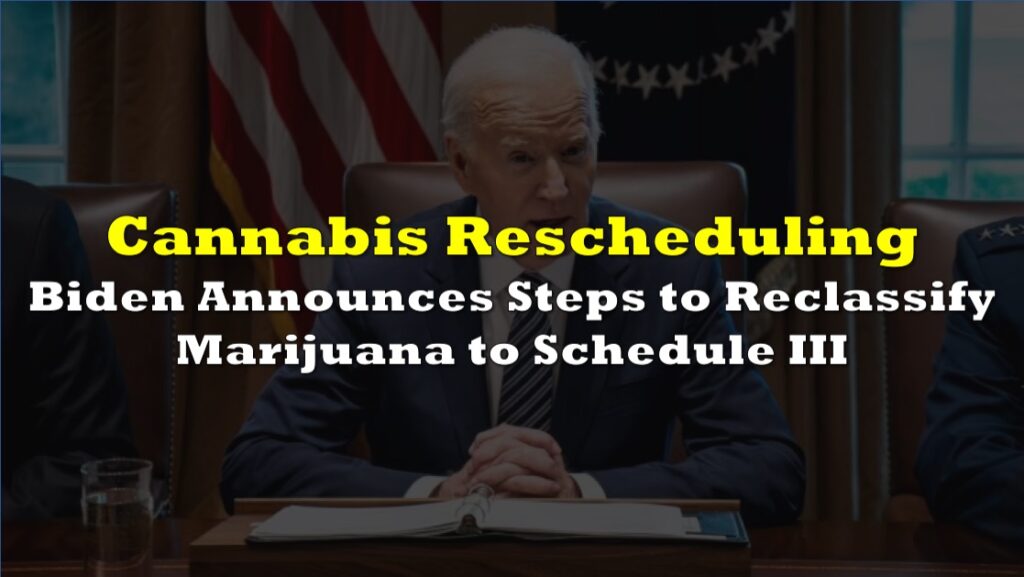The U.S. Drug Enforcement Administration appears to be signaling resistance to the growing federal momentum to reschedule marijuana, as key hearings approach that could mark a historic shift in U.S. drug policy.
While the Department of Health and Human Services (HHS) has recommended moving marijuana to Schedule III of the Controlled Substances Act, the DEA’s planned testimony suggests it remains skeptical, raising concerns about the substance’s potential risks and abuse.
The DEA's planned testimony is of particular interest. Reading through the filing, it's clear the agency does not support rescheduling and plans to testify to the harms of cannabis use. https://t.co/enteYsdm6M
— Jeremy Berke🍁🍃🏔️ (@jfberke) November 27, 2024
In a statement released ahead of the upcoming hearings, the DEA previewed the arguments it plans to bring to the table. Two key witnesses have been selected to present the agency’s case:
- Heather Achbach, a DEA official, is expected to provide insights into the rulemaking process that led to the hearings.
- Dr. Luli Akinfiresoye, a DEA pharmacologist, will discuss the agency’s data on marijuana’s risks, including its potential for abuse, rising potency levels, and broader public health concerns. Akinfiresoye will also critique the eight-factor analysis conducted by HHS that led to its rescheduling recommendation.
The DEA has also noted its disagreement with aspects of the HHS analysis, though it declined to participate in joint testimony during the upcoming hearing—a notable indication of its divergence from the Biden administration’s broader push for reform.
Marijuana has been a Schedule I drug since the Controlled Substances Act of 1970, a designation reserved for substances with a high potential for abuse and no accepted medical use. This classification has long been criticized by medical professionals, lawmakers, and advocates for impeding research and criminalizing use, despite growing evidence of marijuana’s therapeutic potential.
In August 2023, HHS formally recommended rescheduling marijuana to Schedule III, citing updated research on its medical applications and lower potential for abuse compared to substances like opioids. This marked a watershed moment in federal marijuana policy. However, the DEA, the agency ultimately responsible for scheduling decisions, has yet to embrace this recommendation, and its forthcoming testimony may reveal deeper resistance.
The DEA’s skepticism toward marijuana reform is not new. In 1988, DEA Chief Administrative Law Judge Francis Young recommended moving marijuana to Schedule II, describing it as “one of the safest therapeutically active substances known to man.” However, the DEA administrator overruled the recommendation, citing insufficient evidence.
The agency has since consistently maintained that marijuana’s classification as a Schedule I drug is justified based on scientific and public health concerns. Critics argue that this resistance is politically motivated, with the DEA reluctant to cede control over one of its cornerstone drug policies.
Rescheduling marijuana to Schedule III would have wide-ranging consequences. The move would allow researchers to study marijuana more easily by removing barriers created by its Schedule I status. It would also enable cannabis businesses to qualify for standard tax deductions, addressing a major financial challenge for the legal industry under Section 280E of the Internal Revenue Code.
However, rescheduling would stop short of full legalization, leaving individual states to regulate marijuana use as they see fit.
Public support for marijuana reform has surged in recent years, with a Pew Research poll showing nearly 90% of Americans favor some form of legalization. Many state governments have already moved ahead with their own policies, legalizing marijuana for medical or recreational use. Meanwhile, the cannabis industry continues to grow, generating billions in revenue and pressuring federal agencies to align with state-level reforms.
The DEA’s resistance could stall these efforts, leaving the industry in a regulatory limbo and perpetuating tensions between federal and state law.
While the December 2 hearing will focus on procedural matters, the real showdown is expected in early 2025 when the DEA will begin hearing in-person testimony. The stakes are high: the DEA’s decision could either pave the way for significant policy reform or solidify its role as a gatekeeper standing in the way of change.
Information for this story was found via the sources and companies mentioned. The author has no securities or affiliations related to the organizations discussed. Not a recommendation to buy or sell. Always do additional research and consult a professional before purchasing a security. The author holds no licenses.









